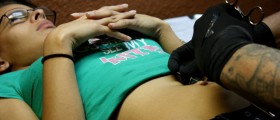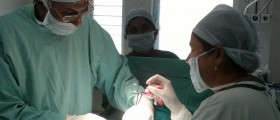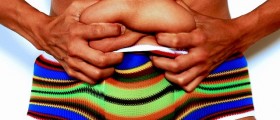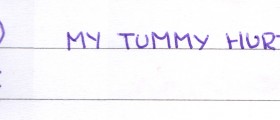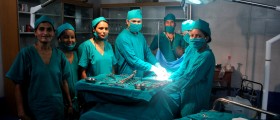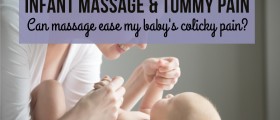Loading...
BRO i cant believe i have finally found this tread dude. I've had this pain for years at least since highschool. For me i experience this type of pain maybe 2-3 times a year although it been about 4 last year ( i think its cause i do way more manual labor due to work). It seems like it happens when i either workout or do a awkward movement lifting and not stretching beforehand that pulls this muscle or whatever it is. I get so paranoid about it like i always lean back rotating my hips back and stretch to see if i feel it. How i deal with it when i have an episode is i just laydown and try to massage the bellybutton and slowly stretch it out. If i have to pee (which i dread when it comes) I've learned to sit down and I completely avoid the worst pain I've ever felt. last episode i had was about 4 months ago and i slept for 2 hours in the fetal position holding a pillow and was back to normal. What I've been doing to avoid this now is been exercising more again and working on my abdomen and strengthening it to hopefully reduce the pulled muscle (or whatever it is). i also make sure to stretch every morning before work or doing exercise and really stretch the core. Pee whenever i feel like i have to and not holding it in (i feel like this maybe could contribute to it have no idea). And lifting properly and keeping the core tight and not doing a jerking movement. I will continue following this thread, hopefully some of these methods i use when an episode occurs can help you guys. P.s ive also been to a doctor and have had no idea what was wrong, did and ultrasound to see if it was a hernia or kidney stones and nothing.
Loading...
Loading...
Both the cystoscopy procedure and hernia surgery are common medical procedures performed by trained professionals. The cystoscopy allows urologists to examine the bladder and urinary tract for any abnormalities or sources of pain. Hernia surgery is typically performed to repair a hernia, and complications are generally rare.
It's crucial to have open and honest communication with your urologist and surgeon about your concerns and the pain you are experiencing. They can provide you with detailed information about the procedures, potential risks, and expected outcomes based on your specific medical history and condition.
Remember that every individual's situation is unique, and the decision to proceed with any medical procedure should be made in consultation with your healthcare providers. They can help weigh the potential benefits and risks to find the best course of action for your health and well-being.
If you feel unsure about the suggested treatment plan or are not getting the answers you need, seeking a second opinion from another specialist might be an option to consider. Always prioritize your health and well-being and take the time you need to make informed decisions about your medical care.
Loading...
I woke up this morning and got a similar pain. It almost feels like someone is pulling a catheter out of my urethra. I get it when I twist my upper body to the left or I stretch backward, stretching my abdomen. The ladder provokes a much more intense, acute pain that goes as fast as it comes. When I pee, towards the very end I get a faint hint of the strain, and that lingers for a bit. My father is a surgeon and he says it most likely is nothing, just spasms, but it is possible that it is a hernia as I do exercise frequently. I don't really know what it is, at first, I thought it was kidney stones, but if it were, the pain would be more constant. I have yet to take pain killers so, we will see if that works.
Loading...
Loading...
Loading...
Hi, Steve.
Given the detailed description, a few things stand out:
-
Referred Pain: The body has a complex network of nerves. Sometimes, pain or discomfort in one area may manifest in another seemingly unrelated area. This is called referred pain. It's possible that whatever is happening in or around your belly button could be causing referred pain to the tip of your penis.
-
Hernia & Mesh: Hernia repairs using mesh can lead to discomfort post-surgery, as you mentioned. The body can have inflammatory reactions to the mesh, which can last several months. Over time, the pain usually subsides as the body adapts to the mesh, but in some cases, complications can arise.
-
Posture: You mentioned the pain started after working hunched over your desk. Bad posture can put undue stress on the spine and muscles, and in turn, may compress or irritate nerves.
Here's what you might consider doing:
-
Physical Therapy: Physical therapy can be beneficial for post-surgical recovery and pain management. A therapist can also guide you through exercises that can help improve posture and potentially relieve nerve compression or irritation.
-
Neurologist Consultation: Given the potential nerve involvement, consider seeing a neurologist. They might be able to provide insights into whether a nerve is being impinged or if there's another neurological explanation for your symptoms.
-
Pain Management: There are specialized doctors who focus solely on pain management. They might have strategies or treatments that could help reduce your discomfort.
-
Mental Health: Chronic pain can be emotionally taxing. Consider seeing a therapist or counselor to help you manage the mental and emotional strain this experience might be causing.
-
Second Opinion: If you're uncertain about your diagnosis or treatment plan, consider seeking a second opinion from another surgeon or specialist. Sometimes, a fresh set of eyes can provide new insights.
-
Alternative Therapies: Some people find relief from chronic pain using therapies like acupuncture, chiropractic treatments, or massage therapy.
-
Ongoing Monitoring: Make sure to keep regular follow-ups with your doctor, especially if your symptoms change or if you notice any new symptoms.
Hope this helps.
